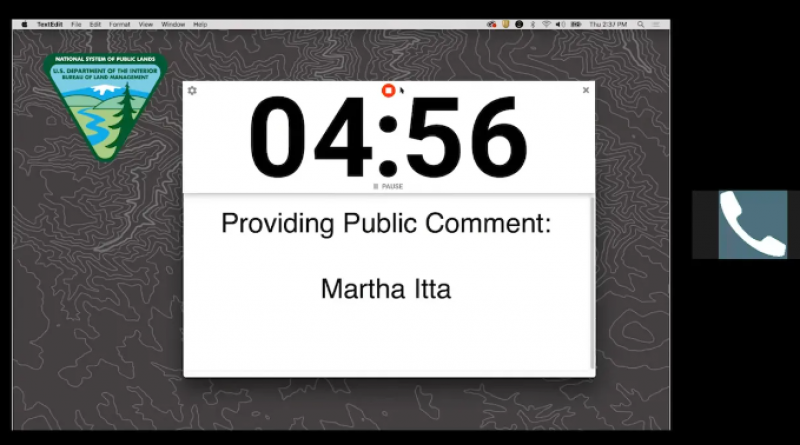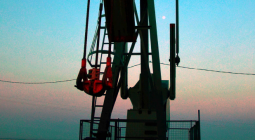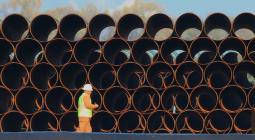Drilling on Public Lands: Native American Voices Frustrated by Virtual Public Hearings Over Zoom.

The Trump administration has attempted to plow forward with its plans to open up public lands to drilling for oil and gas exploration. To do so, it has continued to hold public meetings over Zoom. That means that Native American groups who often have spotty internet service or no service at all are not able to participate in the public meetings, according to The Washington Post.
While tribal groups are often vociferous in public meetings in an attempt to protect their land from encroaching industry and the pollution that accompanies it, some have complained that the technology creates a roadblock to participating in the public discussion.
More than 30 percent of tribal lands lack access to basic broadband, according to the Federal Communications Commission.
The issue was recently relevant in Alaska, where ConocoPhillips is looking to expand its drilling operation in Alaska's North Slope. The project would move drilling deeper into the National Petroleum Reserve-Alaska in the direction of currently protected habitat. It would also increase development that may affect the Alaska Native village of Nuiqsut, which sits just inside the petroleum reserve border and is home to roughly 400 people, as E&E News reported.
Martha Itta, a resident of Nuiqsut, said in a letter to the Bureau of Land Management's project manager, Rachael Jones, that she was "frustrated and saddened" after an April 23 meeting. She described technology as a hurdle that excludes many members of the public in rural Alaska, as E&E News reported.
She also noted in the letter that the Zoom platform gave outsized control to the moderator. "I myself was muted after my initial comment and they would not unmute me," she wrote in her letter, as E&E News reported.
"How many North Slope members have access to WiFi?" Raymond Ipalook, vice president of the tribal council in the Alaska Native village of Nuiqsut, asked during one virtual hearing on April 21, according to The Washington Post. "That's what I want to know. How many of them know that this webinar is going on?"
A similar problem happened with a proposed project in New Mexico, where there were complaints of speakers being dropped by bad connections and moderators muting the microphones of meeting participants.
The Bureau of Land Management, however, is telling another story, saying that the virtual meetings are a resounding success and allowing more people to participate in the meetings. According to The Washington Post, more than 300 people participated in eight virtual public meetings in Alaska while 100 participated in the first in New Mexico last Thursday, with yet more viewing on Facebook, the BLM said. By contrast, 250 attendees showed up to six in-person meetings held in Anchorage, Fairbanks and other spots in Alaska last year.
In northwestern New Mexico, where an oil and gas project would infringe on Pueblo land, speakers asked the government to pause the public comment period, since they would like more time to make their voices heard before the government moves forward with a plan that will bring energy and other development near cultural sites considered sacred to New Mexico's Pueblos and other tribal groups within the Chaco Culture National Historical Park, according to The Washington Post.
"Although I am participating in today's virtual public meeting, I want to make clear that the All Pueblo Council of Governors and our member Pueblos have not had the resources necessary to meaningfully comment," said Marissa Naranjo, policy director with the All Pueblo Council of Governors, noting that the two counties surrounding the protected area have some the highest coronavirus infection rates in New Mexico, according to The Washington Post.
The entire congressional delegation for New Mexico has asked that the public comment hearing be extended 120 days.
20 May 2020
EcoWatch




